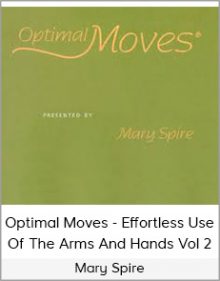MasterClass – Garry Kasparov – Chess
Original price was: $90.00.$37.00Current price is: $37.00.
At age 22, Garry Kasparov became the youngest world chess champion. After beating Bobby Fischer’s peak rating, he outranked his fiercest competitors for over twenty years. Now, Garry is ready to share the chess strategy that made him a six-time world champion.
- Description
- Reviews (0)
- More Products
Description
MasterClass – Garry Kasparov – Chess

At age 22, Garry Kasparov became the youngest world chess champion. After beating Bobby Fischer’s peak rating, he outranked his fiercest competitors for over twenty years. Now, Garry is ready to share the chess strategy that made him a six-time world champion. Through detailed lessons, including his favorite openings and advanced tactics, you will develop the instincts and philosophy to become a stronger player.
01. Introduction
Garry’s teaching reflects his style of play: direct, dynamic, and ambitious. He shares what he will cover in this class, including concrete instruction for players at different levels.
4:16
02. Garry’s Chess Fundamentals
Learn how a World Chess Champion thinks as Garry shares the tenets of his chess philosophy.
17:54
03. Double Attacks – Part 1
The double attack is a simple concept that can often be deadly. Garry offers elegant examples to show its power—and how to defend yourself from it.
21:26
04. Double Attacks – Part 2
Garry offers an in-depth study of the double attack to help you expand your practical portfolio.
16:05
05. Skewers
Garry believes in the power of geometry. Through these positions, he shows how you can get the best out of your pieces—even the weak ones.
17:07
06. Discovered Attacks
Missing a discovered attack can have dramatic consequences. Garry’s examples reveal how even top players can overlook this surprising move.
15:41
07. Pins
Not all pins are created equal. Understanding their effectiveness means understanding the power of paralyzing your opponent’s pieces, especially in the endgame.
16:11
08. Deflection/Attraction
Defense requires harmony, and knowing how to disrupt your opponent is critical. Garry shows how to identify an opponent’s target and then find a tactical way to destroy that defensive coordination.
23:12
09. Interference
The moment an opponent’s pieces lose their ability to counter threats, you can start building your attack.
13:22
10. Overload
The most destructive form of overload is when a piece has to watch for threats coming from different directions. Garry’s examples include one move that made his opponent literally jump out of his chair.
12:36
11. Winning Trades
Trading pieces doesn’t mean simply eliminating pieces of equal value. In the endgame, it can create a decisive advantage—or save a game that appears hopeless.
11:22
12. Endgames – Part 1
In Garry’s experience, the endgame never means the end of excitement. He shows the purity and creativity of the endgame—including drama, shouldering, and zugzwang.
21:22
13. Endgames – Part 2
Garry continues his endgame lessons with pawn endgames, rook endgames, queen v. pawn—and, of course, the king’s role. While it can seem slow and weak in the middlegame, an active king is vital in the endgame.
15:35
14. Endgames – Part 3
Garry believes miracles happen when you know how to create them. While most players spend time on openings, you can make game-changing miracles by studying the rich possibilities of endgames.
14:18
15. Openings – Part 1
Garry played e4 as a child prodigy and stuck with that move as the under-18 chess champion of the USSR and under-20 champion of the world. Learn when and how he grew his repertoire.
13:48
16. Openings – Part 2
What happens when your opponent plays your opening? How do you find a satisfying opening both psychologically and strategically? Is there such a thing as universal opening advice?
20:05
17. Openings – Part 3
He brought abandoned openings back from the dead and built a database of almost 20,000 different analyses—but Garry believes there are still more ideas to surface.
11:08
18. Simul
With a time control of 30 minutes, watch Garry take on three players with ratings of 1266, 1515, and 2103.
52:59
19. Jason’s Game
“What else can you do?” Garry breaks down Jason’s moves and answers questions about what his opponent could have done differently.
6:36
20. Molly’s Game
“It seems like the whole army is coming for me.” After Molly opens with the Sicilian, Garry counters with a quiet move. From there, Garry talks through how he developed his pieces and explains how Molly could have created more discomfort for him.
5:58
21. Dennis’ Game
“No, I didn’t see that line.” Garry points out a line that Dennis missed and shows how he created the illusion of an attack without any real threat.
9:03
22. Case Study: Opening
Garry dissects his opening against Vishy Anand in 1995. The discussion includes analysis of a decisive mistake, strong attacks, tactical motifs, and a powerful yet quiet move that came at a rare early stage of the game.
20:38
23. Case Study: Endgame
Garry focuses on pawn endgames and the drama they can create. An appetite for the beauty of the endgame is one of the best ways to improve your chess.
18:11
24. Garry’s Journey
Even when Garry was a kid, the number 13 held special meaning for him. He shares the realization of that numeric destiny and the forces that shaped his singular style of play.
13:58
25. How to Analyze
World champions climb to the top through brutal and relentless analysis. Learn what Garry believes is the greatest danger facing players.
5:30
26. Computers and Chess
The sting of Garry’s loss to Deep Blue has softened over the years. He looks back on that defeat and forward to the benefits of computers in chess training.
8:59
27. Mental Toughness
The poster that hung over Garry’s bed as a kid included a line borrowed from Soviet dissidents: “If not you, who else?” Garry talks about triumphing in the most grueling matches of his career, as well as how he recovered when his mistakes felt like a physical pain.
17:33
28. Closing
Whether you’re playing at home, at a club, or in a tournament, the variations in chess are limitless—and so are the possibilities for improving your game.
2:39
29. Bonus! Secret Novelty
After a crushing loss to Karpov, Garry analyzed his play and came up with a variation that he never used.
6:40
Be the first to review “MasterClass – Garry Kasparov – Chess”
You must be logged in to post a review.
-
Jessica Dibb – The Enneagram Of Essence
Original price was: $897.00.$92.00Current price is: $92.00. Buy now -
Steve G. Jones – NLP Trainer Advanced Training
Original price was: $875.00.$117.00Current price is: $117.00. Buy now -
Mary Spire – Optimal Moves – Effortless Use Of The Arms And Hands Vol 2
Original price was: $48.00.$17.00Current price is: $17.00. Buy now
























Reviews
There are no reviews yet.